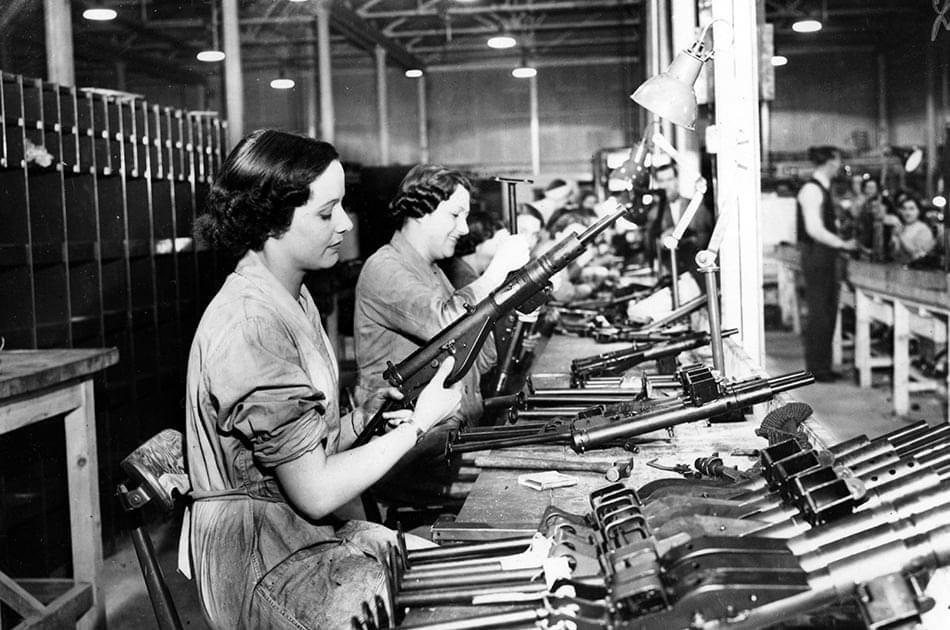戦 争
war, guerra, SENSO

マヤ文明古典期の戦争捕虜
戦 争
war, guerra, SENSO

マヤ文明古典期の戦争捕虜
ウィキペディア(英語)の「戦争の定義」がもっとも 標準的なの で、引用しよう。
"War is a state of armed conflict between states, governments, societies and informal paramilitary groups, such as mercenaries, insurgents and militias. It is generally characterized by extreme violence, aggression, destruction, and mortality, using regular or irregular military forces. Warfare refers to the common activities and characteristics of types of war, or of wars in general.[from Cambridge Dictionary] Total war is warfare that is not restricted to purely legitimate military targets, and can result in massive civilian or other non-combatant suffering and casualties." - War.
戦争とは、国家、政府、社会、そして傭兵、反乱軍、
民兵などの非公式な準軍事的集団の間で行われる武力紛争の状態である。一般的には、正規または非正規の軍事力を用いた極度の暴力、侵略、破壊、死亡を特徴
とする。総力戦とは、純粋に合法的な軍事目標に限定されない戦争であり、大量の民間人や非戦闘員の苦痛や死傷者を出す可能性がある。この場合の、総力戦(total war)は、エーリッヒ・ルーデンドルフ(Erich
Ludendorff, 1865-1937)の主著のタイトルである『総力戦(Der totale Krieg,
1934)』から生まれたことばで、一般的(ウィキペディア)には「全面戦争(total
war)とは、あらゆる民間の関連資源やインフラを正当な軍事目標とし、社会のあらゆる資源を戦争に動員し、非戦闘員のニーズよりも戦争を優先させる戦争で
ある」と定義されている。
戦争は、単に諍いのことではなく、武装した人・法人・共同体・国家・国家間連合どうしの組織的な武力衝突のことで ある。
戦争論が好きな人は、かならず、プロイセンの軍人のカール・フォン・クラウゼヴィッツ(Carl Philipp Gottlieb von Clausewitz, 1780-1830)の有名な定義「戦争は外交の延長である」と訳知り顔に言いますが、これは、国際的な外交のルールや、国家が行使する交戦権の国際法の 関係のなかで理解しないと、戦争を暴力的な外交だというふうに(ヒトラーの第三帝国は実際そのような面が多くありました)アホなミリヲタと変わらないこと になります。端的にいうと数多の戦争論の文献を渉猟した人は、クラウゼヴィッツの戦争の定義を修正して、「戦争には外交の延長であることがみられるのは、 その多くは、停戦や降伏の提案と受理という局面である」ということができます。したがって、ここでの戦争の定義には、クラウゼヴィッツの定義は採用せず、 「戦争とは、国家、政府、社会、そして傭兵、反乱軍、 民兵などの非公式な準軍事的集団の間で行われる武力紛争の状態」であるという、先のままにしておきます。
このように単純な現象一般を指して戦争と呼ぶことが 一般的であるが、トーマス・ホッブスの戦争の定義は、戦争当事者(社会学的にはエージェントと呼ぶ)の「意志」をその定義に含めているためにユニークであり、そこに時間の要素と、戦争をする志向性を戦争の定義に含めている。
「……戦争とは、戦闘や闘争行為だけに存するのでは なく、戦闘によって争うとする意志が十分にうかがわれる継続する期間に存するからである。したがって、戦争の本質にかんしては、天候の本質にかんするばあ いと同じく、時間の概念が考慮に入れなければならない。すなわち、不良な天候の本質は、ひと降りふた振りのにわか雨にあるのではなく、連日にわたるそれへ の傾向にあるのであり、それと同じく、戦争の本質は実際の闘争に存するのではなく て、闘争への明らかな志向に存するのであり、その期間中は、反対の方向に向かうなんらの保証もないのである。その他のすべての期間は平和で ある」(ホッブス 1966:85)。
"and such a war as is of every man against every man. For war consisteth not in battle only, or the act of fighting, but in a tract of time, wherein the will to contend by battle is sufficiently known: and therefore the notion of time is to be considered in the nature of war, as it is in the nature of weather. For as the nature of foul weather lieth not in a shower or two of rain, but in an inclination thereto of many days together: so the nature of war consisteth not in actual fighting, but in the known disposition thereto during all the time there is no assurance to the contrary. All other time is peace." Ch.XIII from "THE LEVIATHAN"
つまり、戦争とは、単に武力が衝突している状態では なく、時間の相において、かつ、戦争行為を志向するモード(様態)が含まれたものなのである。つまり、戦争とは、構造的なものであり、かつ、構造的なもの でないと戦争とは言えないのである。
In other words, war is
not merely a state of armed conflict, but one that involves a mode
(aspect) that is both in the phase of time and oriented toward the act
of war. In other words, war is structural and must be structural in order to be called war.
●総力戦の特徴
先に「総力戦とは、純粋に合法的な軍事目標に限定されない戦争であり、大量の民間人や非戦闘員の苦痛や死傷者を出す可能性がある。この場合の、総力戦(total war)は、エーリッヒ・ルーデンドルフ(Erich Ludendorff, 1865-1937)の主著のタイトルである『総力戦(Der totale Krieg, 1934)』から生まれたことばで、一般的(ウィキペディア)には「全面戦争(total wa)とは、あらゆる民間の関連資源やインフラを正当な軍事目標とし、社会のあらゆる資源を戦争に動員し、非戦闘員のニーズよりも戦争を優先させる戦争で ある」と定義されている」と述べた。ウィキペディア(英語)の当該の項目には、8つの代表的な総力戦の特徴があげられている。
| 戦略爆撃(Strategic bombing) |
Strategic bombing, as during World War II, the Korean War, and the Vietnam War (Operations Rolling Thunder and Linebacker II) |
| 攻城戦あるいは軍事的封鎖(siege) |
Blockade and sieging of
population centers, as with the Allied blockade of Germany and the
Siege of Leningrad during the First and Second World Wars |
| 焦土作戦(Scorched earth) |
Scorched earth policy, as with
the March to the Sea during the American Civil War and the Japanese
"Three Alls Policy" during the Second Sino-Japanese War |
| 通商破壊(Commerce raiding) |
Commerce raiding, tonnage war,
and unrestricted submarine warfare, as with privateering, the German
U-Boat campaigns of the First and Second World Wars, and the United
States submarine campaign against Japan during World War II |
| 連座(Collective punishment) |
Collective punishment,
pacification operations, and reprisals against populations deemed
hostile, as with the execution and deportation of suspected Communards
following the fall of the 1871 Paris Commune or the German reprisal
policy targeting resistance movements, insurgents, and Untermenschen
such as in France (e.g. Maillé massacre) and Poland during World War II |
| 工業による戦争(Industrial warfare) |
Industrial warfare, as with all belligerents in their respective home fronts during World War I and World War II |
| 市民と戦争捕虜の労働動員(use of civilians and prisoners of war as forced labor for military operations) |
The use of civilians and
prisoners of war as forced labor for military operations, as with Japan
and Germany's massive use of forced laborers of other nations during
World War II (see Slavery in Japan and Forced labor under German rule
during World War II)[3] |
| 容赦のない攻撃(No quarter) |
Giving no quarter (i.e. take no prisoners), as with Hitler's Commando Order during World War II |
★総力戦のイメージ

British factory workers assembling Sten sub machine guns at the Royal Small Arms Factory (RSAF), 1942.
●我々が「戦争の真実」について知りたいこと一覧 (『ちゃんと知りたい日本の戦争ハンドブック』青木書店、2006年を参照にした)
| 教育勅語ってなに? |
| 植民地支配には「よいこともあった」言説の解剖 |
| 男性はどのようなトレーニングを受けて兵士になったのかのか? |
| 戦争映画とマインドコントロール |
| 戦争のあいだに、女性に期待されたことはなにか? |
| 満州国建国時の国際評判はどうよ? |
| 中国への侵略戦争とはどのようなものだったのか?——なぜ戦線は拡大し
たのか?(→「15年戦争史観」) |
| 軍国主義に抵抗した人はなぜ少数派だったのか?(→「知識人の戦争責任」) |
| 防共協定や三国同盟が戦争に与えた影響(→「忘れる人のための国際関係論:06 戦争および軍事紛争」) |
| 台湾従軍慰安婦について知っているか? |
| 軍需産業は戦争でどれくらい利益をあげただろうか? |
| 南京大虐殺(南京事件)の日本での評判 |
| アジアの戦争記念館は日本軍による戦争行為をどのように伝えているの
か? |
| 靖国神社とはなにか?——どうして靖国神社は重要だったのか?(→「靖國神社観光論」) |
| 731部隊とはなにか? |
| 三光作戦について調べる |
| 日本はなぜ、米英と戦争したのか? |
| 日本はオーストラリアと戦ったのを知っているか? |
| 日本軍による捕虜虐待はなぜ問題になったのか? |
| 特攻隊員として死んでいった朝鮮出身の兵士のことについて知っているか? |
| 沖縄戦とはどのような戦いだったのか? |
| 当時、日本軍は侵略戦争と呼ばず、アジア解放のための戦いと呼んだのはなぜか? |
| シンガポールの教科書には、どのように日本の戦争は書かれているのか? |
| 戦争期における国民の動員とはどのようなものか? |
| 子どもたちはどのような教育をうけたのか? |
| 原爆はなぜ投下されたのか?戦後処理において原爆投下はどのように考えられたか? |
| 終戦(=ポツダム宣言を受諾したこと)の決定は、いつ、だれによっておこなわれたのか? |
| 東京裁判とBC級戦犯裁判の違いをいえますか? |
| いわゆる戦後賠償問題とはなにか? |
| 戦争責任とはなにか? |
| 戦争責任に決着をつけるとはどのようなことをいうのか? |
| 占領政策とはなにか? |
| 戦後の日本の政治改革とはどのようなかたちでおこなわれたのか? |
| カーコニバル事件とはなにか? |
| 天皇制はなぜ敗戦でなくならなかったのか? |
| 映画は戦争をどのように描いているか?:戦前、戦中期、戦後、そして現在 |
| サンフランシスコ講和条約について知っているか? |
| 戦争の文化人類学的研究とはなにか? |
| 戦争表象論入門 |
リンク
文献
その他の情報